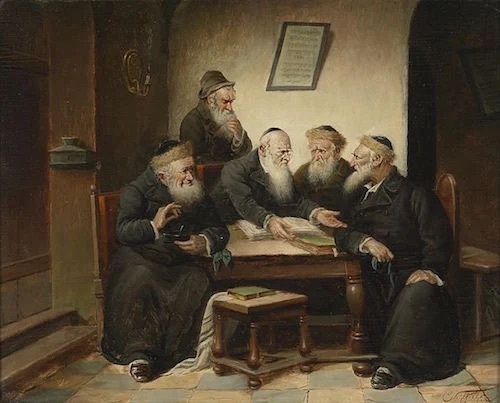Jewish law is known as Halacha, from the Hebrew word ‘to go or walk’. It explains the way a Jew should ‘walk’ in life ie: the way to behave. It is based on firstly, the 613 Commandments as written down in our Holy Book, the Torah and secondly, subsequent Rabbinic Law.
The 10 Commandments
These are the most important of all the Commandments and form the bedrock and ethos of Judaism.
1. You shall have no other gods but Me.
2. You shall not make idols.
3. You shall not take the name of the Lord your God in vain,
4. Remember the Sabbath day and keep it holy.
5. Honour your father and your mother.
6. You shall not murder.
7. You shall not commit adultery.
8. You shall not steal.
9. You shall not lie.
10. You shall not be jealous.
Rabbinic Law
This was laid down by our Rabbis and scholars in the Talmud to further explain and enable Jews to adhere to the Commandments in practice.
Following on from both the Commandments and Rabbinic Law were a whole raft of associated customs and traditions.
Therefore Halacha guides not only religious beliefs and practices but also numerous aspects of day to day life.
Nowadays some differences in Halacha are found among different Jewish communities around the world. (See Subdivisions within Judaism). Some Jews regard the Halacha as less binding because it is not necessarily appropriate to modern day to day life. Their rationale is that some of the 613 Commandments are no longer applicable (for example, those that refer to the long-gone Temple in Jerusalem) and b) some laws relied on rabbinic interpretation and were therefore open to personal interpretation and human fallibility.
One of our most famous Rabbis, Hillel, summarised Jewish Halacha with his “Golden Rule“: “That which is hateful to you, do not do to your fellow. That is the whole Torah; the rest is the explanation; go and learn.”.

